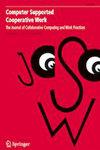鲁棒梯度差分压缩在联邦学习中的应用
IF 2.3
3区 计算机科学
Q3 COMPUTER SCIENCE, INTERDISCIPLINARY APPLICATIONS
Computer Supported Cooperative Work-The Journal of Collaborative Computing
Pub Date : 2023-05-24
DOI:10.1109/CSCWD57460.2023.10152826
引用次数: 0
摘要
目前,联邦学习已成为大规模分布式机器学习的主流范式,但它面临着通信瓶颈的问题。为了解决这个问题,最近的研究通常采用不同的压缩技术,如稀疏化压缩器和量化压缩器。然而,这些方法都是有损压缩,并且有两个缺点。首先,它们可能导致全局参数的信息丢失。其次,携带较少信息的压缩参数比完整参数更容易受到恶意工作者的攻击,导致模型的拜占庭式故障。在本文中,为了避免信息丢失,缓解通信瓶颈,同时容忍流行的拜占庭攻击,我们提出了FedGraD,它利用梯度差分压缩并在联邦学习设置中结合鲁棒聚合规则。在a9a、w8a和mushroom三个不同的数据集上的实验结果表明了我们的方法的良好性能。本文章由计算机程序翻译,如有差异,请以英文原文为准。
Applying Robust Gradient Difference Compression to Federated Learning
Nowadays, federated learning has been a prevailing paradigm for large-scale distributed machine learning, which is faced with the problem of communication bottleneck. To solve this problem, recent works usually apply different compression techniques such as sparsification and quantization compressors. However, such approaches are all lossy compression and have two drawbacks. First, they could lead to information loss of the global parameter. Second, compressed parameters carrying less information would be more likely to be attacked by malicious workers than full parameters, leading to a Byzantine failure of the model. In this paper, to avoid information loss, mitigate the communication bottleneck, and at the same time tolerate popular Byzantine attacks, we propose FedGraD, which leverages gradient difference compression and combines robust aggregation rules in federated learning settings. Our experimental results on three different datasets a9a, w8a and mushrooms show good performance of our method.
求助全文
通过发布文献求助,成功后即可免费获取论文全文。
去求助
来源期刊

Computer Supported Cooperative Work-The Journal of Collaborative Computing
COMPUTER SCIENCE, INTERDISCIPLINARY APPLICATIONS-
CiteScore
6.40
自引率
4.20%
发文量
31
审稿时长
>12 weeks
期刊介绍:
Computer Supported Cooperative Work (CSCW): The Journal of Collaborative Computing and Work Practices is devoted to innovative research in computer-supported cooperative work (CSCW). It provides an interdisciplinary and international forum for the debate and exchange of ideas concerning theoretical, practical, technical, and social issues in CSCW.
The CSCW Journal arose in response to the growing interest in the design, implementation and use of technical systems (including computing, information, and communications technologies) which support people working cooperatively, and its scope remains to encompass the multifarious aspects of research within CSCW and related areas.
The CSCW Journal focuses on research oriented towards the development of collaborative computing technologies on the basis of studies of actual cooperative work practices (where ‘work’ is used in the wider sense). That is, it welcomes in particular submissions that (a) report on findings from ethnographic or similar kinds of in-depth fieldwork of work practices with a view to their technological implications, (b) report on empirical evaluations of the use of extant or novel technical solutions under real-world conditions, and/or (c) develop technical or conceptual frameworks for practice-oriented computing research based on previous fieldwork and evaluations.
 求助内容:
求助内容: 应助结果提醒方式:
应助结果提醒方式:


